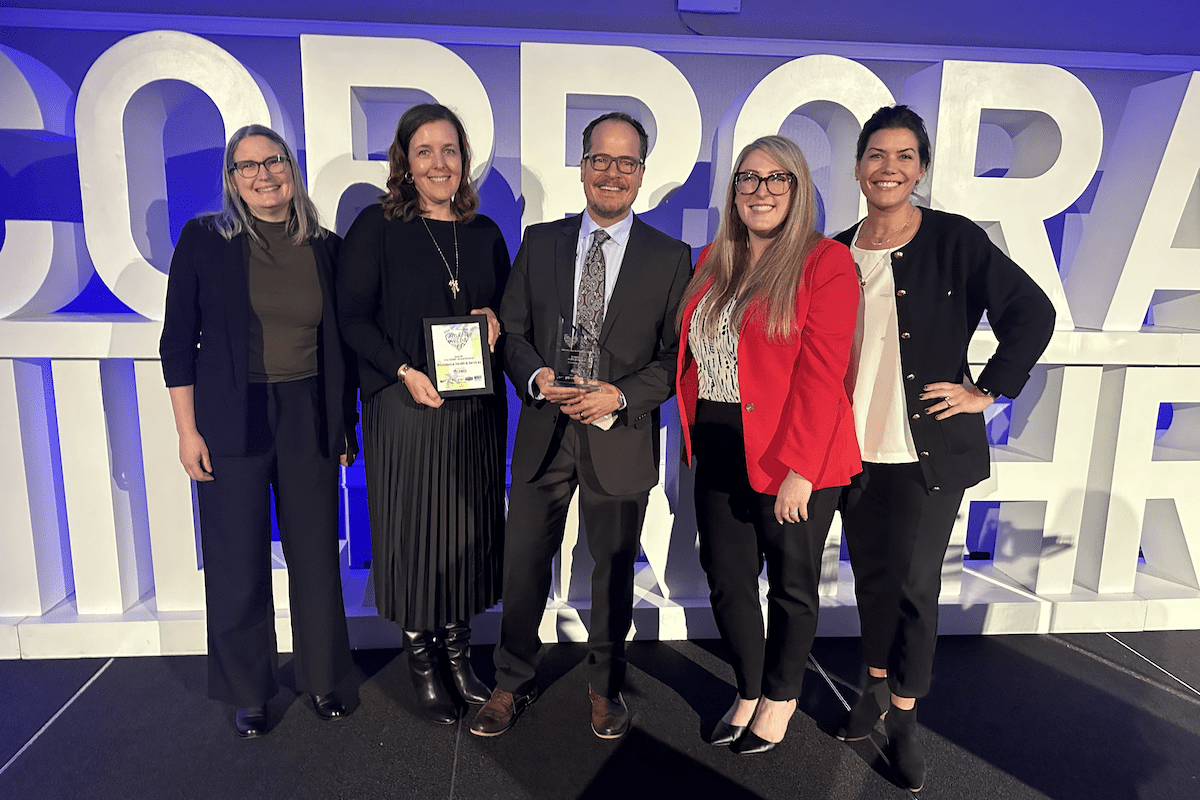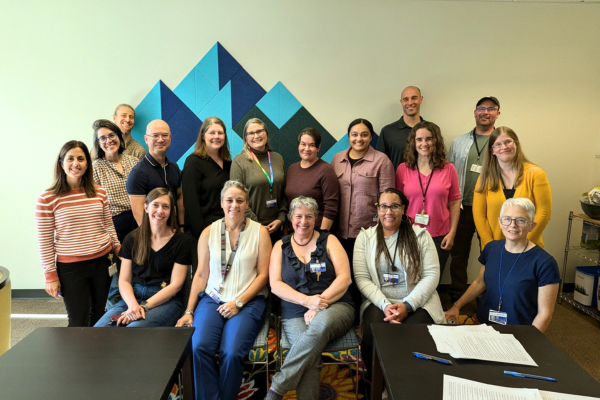Cultivating change: Evaluating a Spanish-language culinary & gardening program
- In 2022, the Providence Community Teaching Kitchen (CTK) piloted a culturally responsive Spanish-language culinary nutrition and gardening program to serve more of the region's Spanish speakers, including those with diabetes or prediabetes.
- Past research showed promising associations between CTK’s services and improved clinical outcomes among patients with diabetes, obesity, or social barriers.
- A CORE evaluation using interviews, surveys, and the Photovoice method revealed positive impacts on participants and staff, as well as opportunities for growth and improvement.
Since launching in 2016, the Milwaukie, Oregon-based Providence Community Teaching Kitchen (CTK) has served the community with chronic disease education, hands-on cooking classes, food insecurity screening, access to healthy foods through its family market and Garden of Giving, and other supports. In 2022, the CTK launched a culturally responsive Spanish-language culinary nutrition and gardening pilot program with support from Providence Health Equity investment. The initiative sought to build on prior research showing promising associations between CTK’s services and improved clinical outcomes among higher-risk patients with diabetes and obesity and social barriers such as food insecurity.
With funding from the William E. and Thelma F. Houseman Foundation, the CTK engaged the Center for Outcomes Research and Education (CORE) to study the program's impacts and opportunities for improvement.
Read on to learn about CORE's approach to the evaluation and key findings, including the evaluation team's use of the Photovoice research method. Or read the summary of findings in English or Spanish (PDF downloads)
Elevating participant voices & bridging cultural gaps
CORE’s evaluation focused on three main questions:
- Engagement: Did the program successfully engage the Spanish-speaking community, including those with prediabetes and diabetes?
- Experience: What were the experiences of staff and program participants?
- Outcomes: What impact did participation have on participants’ knowledge, skills, and access related to the cultivation and consumption of culturally appropriate healthy foods, as well as diabetes outcomes?
CORE used several approaches to answer those questions, including interviews, surveys, and Photovoice, a community-based participatory research method that leverages participant photographs to guide focus group discussions. Photovoice served as a cross-cultural communication tool, complementing CORE's traditional qualitative and quantitative methods and facilitating a deeper understanding and expression of participants' lived experiences.
Key findings from CORE's evaluation
The evaluation identified a variety of positive benefits for CTK participants and staff, including a sense of community, genuine enjoyment, increased knowledge and skills, positive impacts on health and wellbeing, and new perspectives.
Sense of community: Staff and participants felt comfortable, relaxed, and connected to others in the CTK's classes.
"Staff did a great job of just trying to explain things in a way that was just culturally appropriate and [in] the Spanish language. I think the programs definitely helped to build a sense of community." – program participant
Genuine enjoyment: Participants described the classes as comfortable, fun, and enjoyable, with 94% of cooking class participants and 95% of gardening class participants saying they would recommend the class to a friend or family member. They also described how the CTK let them "get away" from daily struggles and focus on caring for their health and wellbeing.
"It gives me a lot of happiness to say, 'Oh, tomorrow is the day' [that there is CTK class] – from the night before, I start packing." – program participant
Knowledge & skills: Participants reported increased confidence and use of the knowledge and skills taught in classes, such as reading nutrition labels when cooking, changes to recipes to make meals healthier, and caring for a garden at home.
"I'm a lot more aware of nutritional labels, portions, what foods are made out of, what exactly I am eating, and what's on my plate." – program participant
Health & wellbeing: From participants’ perspectives, wellbeing meant not just learning about cooking healthier foods and growing vegetables but also adopting a more holistic approach to health. Participants described how bringing home recipe bags after cooking classes and plant starts after gardening classes makes integrating learnings into their day-to-day lives easier. This may have contributed to the observed increase in reported ease of access to traditional food preferences among participants.
"I gave myself goals to focus on my physical health with my diet, exercise – movement, getting along well with people, and my spirituality. So certainly, this is part of my mental health – eating, coexisting, sharing." – program participant
Recommendations for program growth & enhancement
While staff and participants positively characterized their experiences with the CTK, they also identified areas where it could further grow and develop. Recommendations for further program development included offering additional supports for participants and staff, expanding outreach efforts, and clarifying the focus of classes.
Create additional support for participants: Participants reported high social needs and those with diabetes and prediabetes reported gaps in access to supplies needed to test their blood sugar. This highlighted the need to strengthen connections to community resources and culturally and linguistically responsive community partners that can help participants address social needs and answer questions, as well as a call to action for regional healthcare systems to improve access to Spanish-speaking dietitians.
Develop additional support for staff: Provide staff with additional opportunities for training and collaboration to support their career growth, coordinating with other departments to facilitate collaboration and referrals.
Expand participant outreach: Diversify outreach efforts to increase awareness of the CTK and build sustainable partnerships with other Providence departments and organizations outside Providence.
Clarify the classes' focus: Clarify the CTK classes' focus on individuals with a diagnosis of diabetes or prediabetes and expand referral networks to support working with more participants with these diagnoses.
Surprises and future collaborations
For the CORE team, one of the most rewarding parts of this project was experiencing the sense of community fostered by the CTK for participants, staff, and even our researchers. The sense of belonging and comfort observed at the CTK demonstrates the potential for healthcare services to be both effective and inviting.
Overall, the impacts of the Providence Milwaukie Community Teaching Kitchen's Spanish Language Classes reflect the practical and transformative power of community-driven, culturally relevant programs. As the CTK seeks funding to expand further, CORE looks forward to continuing the partnership.
Related resources




